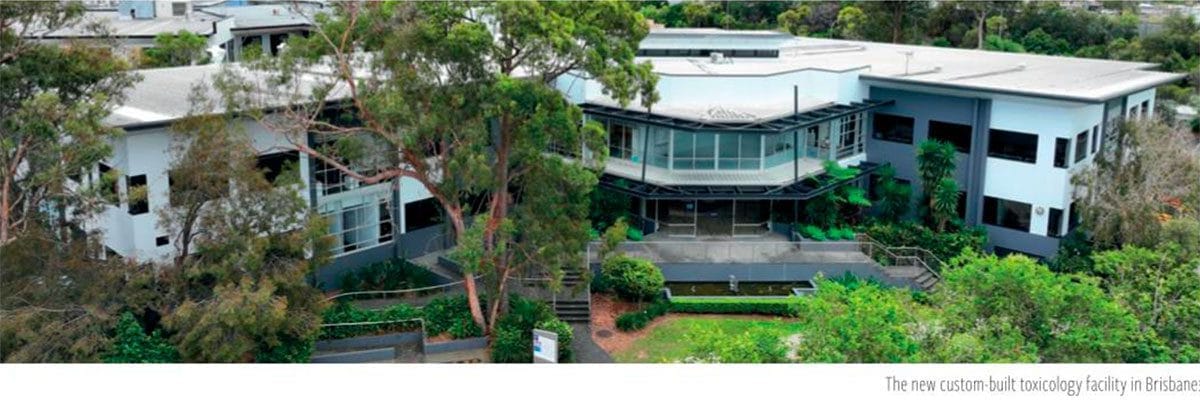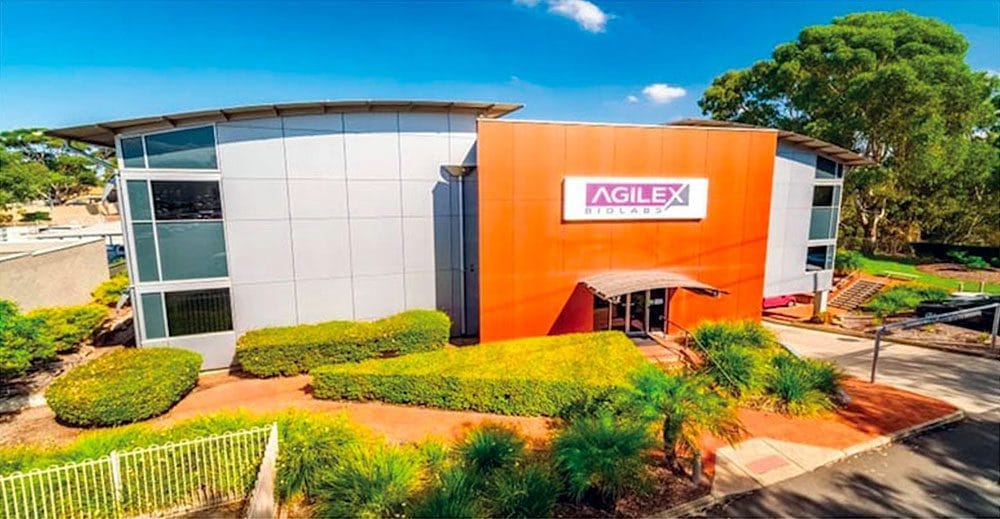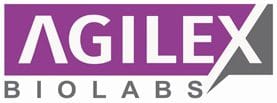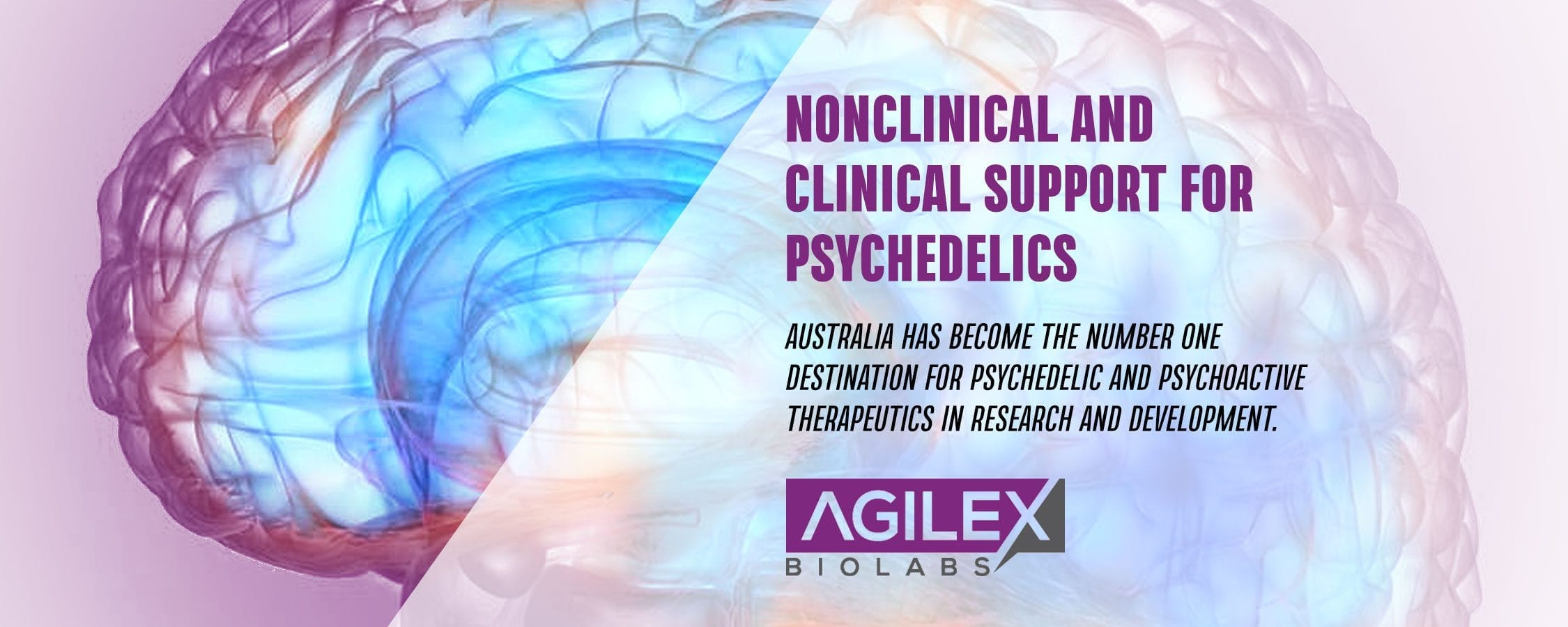by Holly Stefl, Chief Commercial Officer
As Australia becomes the number one destination for psychedelic and psychoactive therapeutics in research and development, Agilex Biolabs’ experience provides fast and efficient drug development.
AUSTRALIA MADE INTERNATIONAL headlines this year as the first country to officially recognise psychedelics as medicines.
This monumental step allows psychiatrists to prescribe drugs like MDMA and psilocybin to patients, but it also opens the door for biotech and pharma companies developing psychoactive therapeutics to gain efficiencies by placing research and development activities in Australia.
Conducting preclinical research and clinical trials for psychedelic compounds is, on average, four months faster in Australia compared to other countries. Every research facility involved in studies is required to have licences and permits in place to demonstrate and document the safe handling of materials, but the processes to obtain permits is relatively streamlined in Australia, and allows experienced and reputable
laboratories to start research activities more quickly than those in other parts of the world.
One example of Australian efficiency is that in order to perform a contracted research study with a scheduled compound, the laboratory performing the study can start up research and development activities if they hold a valid permit to work with the drug (such as ketamine or tetrahydrocannabinols(THC)), rather than having to apply for a unique permit for each and every study, as is required in the United States and other countries. Laboratories do need to secure import permits for each shipment of restricted compound coming in from overseas, but there are also domestic sourcing options for drug manufacturing or commercial procurement within Australia.

As a leaading United States Food and Drug Administration (FDA)-inspected bioanalytical laboratory in Australia, Agilex has more than 25 years of experience supporting clinical trials, and is at the forefront of bioanalytical support for psychedelic trials in Australia. Drug sponsors with psychedelic compounds can depend on the experienced team at Agilex for nonclinical study packages, regulatory experience, and a strong track record of meeting international regulatory standards – including FDA and European Medicines Agency standards.
Agilex customers can contract packages that include a full Investigational New Drug-enabling preclinical study package, nonclinical bioanalysis, and clinical kits – all together, with one provider. This alleviates stress from planning complex development programs, and instils confidence that many moving pieces are managed seamlessly to transition a new drug from preclinical development into clinical trials.
While clinical research support options are widely recognised as plentiful in Australia, the country’s availability to support nonclinical drug development is not as well known.

Agilex Biolabs offers the largest facility for GLP rodent studies in Australia. The new custom-built toxicology facility has more than 10,000 square feet of laboratory space, and the toxicology group has more than 51 years of experience in providing regulated in-life studies to drug sponsors headed towards clinical trials in Australia and elsewhere. In addition to the new Brisbane facility, Agilex’s Adelaide campus houses multiple bioanalytical facilities for small molecules, peptides, biologics, cell and gene therapy, vaccines, and other modalities.
As new psychedelic compound-based medicines are developed, having an expert partner to develop specialised detection methods for patient and preclinical samples is of high importance, most psychedelic compounds belong in a drug category known as ‘small molecules’. Small molecules are primarily detected using highly sensitive, specialised instruments called mass spectrometers. With a strong reputation in Australia for bioanalytical expertise, as well as access to the latest equipment, Agilex’s quantitative mass spectrometry experts deliver rapid and reliable bioanalytical results for clients. The Agiles team is also often recommended for ‘rescue studies’ where the compound proved especially difficult to work with at other biolaboratories.
Both the bioanalytical and toxicology groups at Agilex have experience working with many existing scheduled compounds (e.g. ketamine and psilocybin), as well as new chemical entities based on psychedelically active molecules. As medicinal cannabis has drawn attention over recent years, Agilex has been involved in many clinical trials supporting the analysis of cannabidiol and THC, with assays developed and validated by its expert research and development scientists. A number of these trials have investigated novel delivery systems and combinations of drugs, which is also common to the psychedelics space.
Another critical piece to consider when selecting a contract research organisation partner is whether they have, or can get, licences for the specific molecules of interest. Agilex has licences to work with an extensive list of scheduled drugs, including CBD, THC, psilocybin, psilocin, ketamine, morphine, pentobarbital, isotlurane, heparins, tetracaine, benzylpenicilin, buprenorphine, MDMA.
As emerging biotech companies look to Australia as an option for their research and development activities, the capabilities and experience of Agilex and other specialised service providers can be an important factor in evaluating whether an Australian strategy will be the right fit. Ultimately, Australia’s ecosystem of experienced research and development partners allows biotech companies to navigate their drug development pipeline with efficiency and confidence, which means sooner access for patients that need them.
To learn more about how Agilex can support you, click here to book a meeting with us and we will get back to you.



